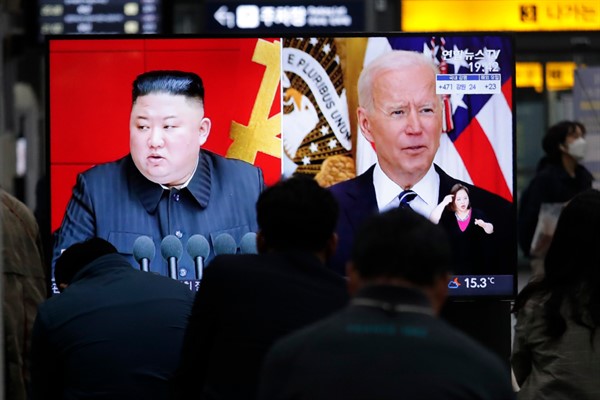The Biden administration is using an outdated script to justify doing very little about North Korea. As a consequence, it’s blowing a unique opportunity to avoid a future crisis, stabilize the Korean Peninsula for the long term and rectify one of America’s longest-running foreign policy mistakes.
On April 30, White House Press Secretary Jen Psaki confirmed that the White House had concluded its months-long policy review on North Korea. There was no official rollout or fanfare, no glossy document with a government logo—just a brief verbal statement to reporters aboard Air Force One. In this case, the low-key reveal was fitting, not just because the urgency of the North Korean nuclear issue pales in comparison to the others on Biden’s plate, but also because the policy review apparently had nothing insightful to offer.
Psaki acknowledged that past approaches to North Korea had failed, though she offered no explanation for why. Was it because of too much pressure, or too little? Because the United States hadn’t offered the right incentives to Pyongyang, or because there was nothing enticing enough to convince Kim to give up the ultimate weapon? Because the United States had been too patient in the past, or not patient enough? An explanation for past failure is necessarily a guide to future policy. Without it, policy is either rudderless or blind to its own assumptions and risks.

